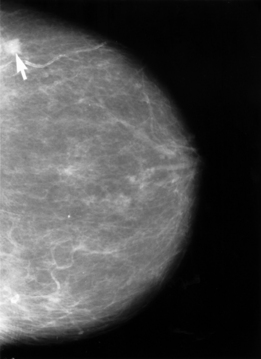Optimal Breast Health

Image via Wikipedia
There are many things you can do to obtain and maintain and optimal breast health. Studies show that an active lifestyle, a healthy diet, and plenty of sleep are among the most important and easiest things you can do to support breast health. Genetics also plays a part in whether or not a woman develops breast cancer. If your mom, sister, aunt or grandmother has had breast cancer, your risk increases. Foods rich in antioxidants are believed to help keep your cells strong and possibly fend off breast cancer. Colorful fruits such as blueberries, cranberries, strawberries, blackberries, and pomegranates are filled with cancer-fighting antioxidants. As are many vegetables such as arugula, kale, carrots, spinach, broccoli, cabbage and cauliflower. Organic foods are especially healthy because they do not contain pesticides and environmental pollutants. The benefits of teas are also worth exploring. Some research suggests that soy intake should be limited, as it can cause increased levels of estrogen in the body. Limit your saturated fat intake as much as possible.
Stress should be kept to a minimum which helps to keep your immune system strong. It is thought that women who start their menstrual cycle before the age of twelve are at an increased risk for developing breast cancer, as are women who go through menopause after the age of fifty-five. Obviously you cannot control your menstruation cycles, but you can be careful if you fall into these categories. Long periods of hormone replacement therapy and use of birth control pills both increase levels of hormones in the body. Try to take natural remedies to ease menopause symptoms or take low levels of hormone replacement for the shortest amount of time possible. Birth control pills with lower hormone levels are becoming increasingly available, and the benefits outweigh the risks for most women. If you have a child after the age of thirty-five, your risk for developing breast cancer slightly increases, as does not having any children at all. If you are overweight or obese, your risk increases because fat tissue retains higher levels of estrogen in the body. Obviously smoking and drinking alcohol of any kind increase your risk.
Most doctors recommend no alcohol or no more than one alcoholic beverage per day. Be sure to do regular self-breast examinations and get mammograms starting at the age that is recommended by your doctor. Women who undergo breast enhancement surgery may have unclear mammograms. Also, if a woman has had breast enlargement surgery with silicone or saline implants, a mammogram will be more difficult to read. Certain medications and environmental pesticides have been linked to breast cancer. It is best to limit your exposure to pesticides and not take medication (especially antibiotics) unless it is absolutely necessary. Pay attention to any unusual changes in your breasts and get yearly gynecological exams. Many women are unsatisfied with their breast shape and size because of our society’s focus on breasts. Women often get breast enlargement surgery because of feelings of insecurity. Natural breast enhancement has also become a big business. To maintain clear, soft skin of course it is best to always use sunscreen and moisturizer on your chest and cleavage. Also, wear a well-fitted, supportive bra to maintain firmness and roundness and for optimal breast enhancement. A good bra also reduces sagging of the breasts. Some women find they need to be professionally measured and fitted to find the correct bra size. If you can follow at least some of our guidelines, it will help you to achieve optimal breast health.
Related posts:
- Why the opposite breast should be evaluated with MRI? medianet_width='300'; medianet_height= '250'; medianet_crid='432485586'; Breast cancer is a worldwide problem with which causes 502,000 deaths per year worldwide. In the United States breast cancer is the most common form of cancer diagnosed in women. Every year more than 40,000 women in the United States die of breast cancer. It is...
- What Do You Eat and Drink: Diet Cancer Links Recently there has been a great awareness to the relationship between the diet we eat and cancer. This is especially important since unlike many other risk factors for cancer this is a very much controllable risk factor. Many are interested in knowing the relationship between specific foods, or nutrients, and...
- The Benefits of Drinking Green Tea for Heart Health, Inflammation and Cancer The wonderful health qualities of green tea are not confined to weight loss. It is the plant compounds in green tea, known as catechins,that are behind the myriad of other health benefits. Adult males who administer themselves high quantities of catechin polyphenols have 75% less risk of receiving stroke. Green...
- Perspectives on colorectal cancer Colorectal cancer is a major health concern and public health problem in most of the Western countries despite widespread use of screening technique to detect early stages of this disease. In the United States alone more than 148,000 people are diagnosed with colorectal cancer each year. Over 55,000 deaths occur...
- Health Benefits of Hazelnut Hazelnut which is a very important nutritional value in a well-balanced diet, has several important health benefits in protecting against diseases. Having special combination of oil (especially oleic acid rich oil structure), proteins, carbohydrate, beta-sitosterol, essential vitamins and minerals, giving hazelnut a special place among other nuts for its unique...
